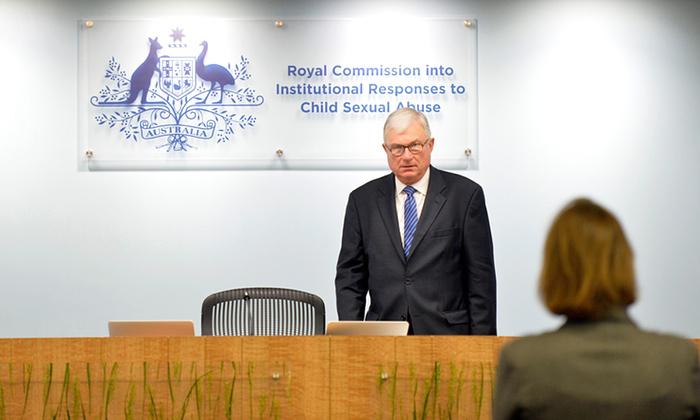|
National child sexual abuse redress scheme needed, says royal commission
By Helen Davidson
Society has failed to protect multiple generations of children from sexual abuse, and a single, national redress scheme is needed to ensure justice and fair compensation for survivors, the royal commission has recommended. The Australian government should announce its willingness by the end of the year, the royal commission said. The findings come in a final report on redress and civil litigation (pdf) by the royal commission into institutional responses to child sexual abuse, which took submissions from more than 250 organisations and individuals. The commission is currently holding its 28th public hearing into a case study of an Australian institution in which devastating child sexual abuse occurred. “Because of the nature and impact of the abuse they suffered, many victims of child sexual abuse have not had the opportunity to seek compensation for their injuries that many Australians generally can take for granted,” the report said. “While it cannot now be made feasible for many of those who have experienced institutional child sexual abuse to seek common law damages, there is a clear need to provide avenues for survivors to obtain effective redress for this past abuse.” The commission made 99 recommendations, but its primary point was that a redress scheme must be fair and equal, regardless of the nature, status, or finances of the institution in which the victim was abused. Any scheme must involve a direct personal response, counselling and psychological care, and monetary payments, it said, with no money diverted from an organisation’s existing support services. Monetary payments “should be to provide a tangible recognition of the seriousness of the hurt and injury suffered by a survivor”, according to the recommendations, with an average payment of $65,000, no less than $10,000 per person and up to a maximum of $200,000. The commission maintained its position that survivors who have already received a payment from an institution should still be eligible to apply for compensation under the national scheme. Any payment under the scheme should release the institution from any further liability, but should impose no confidentiality requirements. “We became aware early on that redress was a matter of priority to survivors of child sexual abuse,” said Philip Reed, CEO of the royal commission. “Many people have been profoundly harmed by their abuse; their injuries are sometimes severe and can last a lifetime. Current and past systems have not provided justice for many,” he said. The Salvation Army reiterated its support for a national scheme when it received the report earlier this month. “The Salvation Army has endeavoured to work with survivors on matters of redress over many years and welcomes the opportunity to consider a broader based independent redress scheme,” it said in a statement. It has previously said it would “resist having to contribute” to its funding unless it had some authority over staffing, decision making and the ability to question costs. Francis Sullivan, CEO of the truth, justice and healing council, which coordinates the Catholic Church’s response to the commission, said the proposed scheme was “broadly consistent” with the church’s submissions. “These redress recommendations are a huge leap forward for survivors of child sexual abuse,” Sullivan said in a statement. “The ball is now well and truly in the Government’s court. Survivors now deserve a positive response from the Commonwealth and state governments and they need to see all governments move quickly to agree on a position and start the process of setting up the scheme.” Monday’s report said a national scheme would cost an estimated $4.01bn with more than $1.25bn paid by government. The community was also “entitled” to look at governments as a “funder of last resort” when an institution no longer exists. In that case the government’s proportion of the cost would increase to almost $1.87bn. A significant portion of claims will be made against governments, ranging from an estimated 26% in the ACT to 41% in the Northern Territory. NSW and Victoria have both expressed a willingness to discuss a national scheme, and responses from the governments of Queensland and WA are not known, the report said. The commission also recommended the Australian government lift Medicare limits of psychological care and counselling sessions, and increase the range of services available for those eligible for redress. The federal government should determine and announce whether it is willing to establish a national scheme by the end of 2015, the commission recommended. It should then commence national negotiations with other governments to ensure it proceeds as quickly as possible. If it is not willing, the next best option is for each state and territory government to establish its own scheme to cover government and non-government institutions. Regardless of the path taken, a scheme should be established and be taking applications from survivors no later than July 2017. “Although the primary responsibility for the sexual abuse of an individual lies with the abuser and the institution they were part of, we cannot avoid the conclusion that the problems faced by many people who have been abused are the responsibility of our entire society,” said the report. The report followed January’s consultation paper which said a $4.38bn nationally run scheme with no fixed end date was the “ideal” proposal.
|
.
Any original material on these pages is copyright © BishopAccountability.org 2004. Reproduce freely with attribution.
